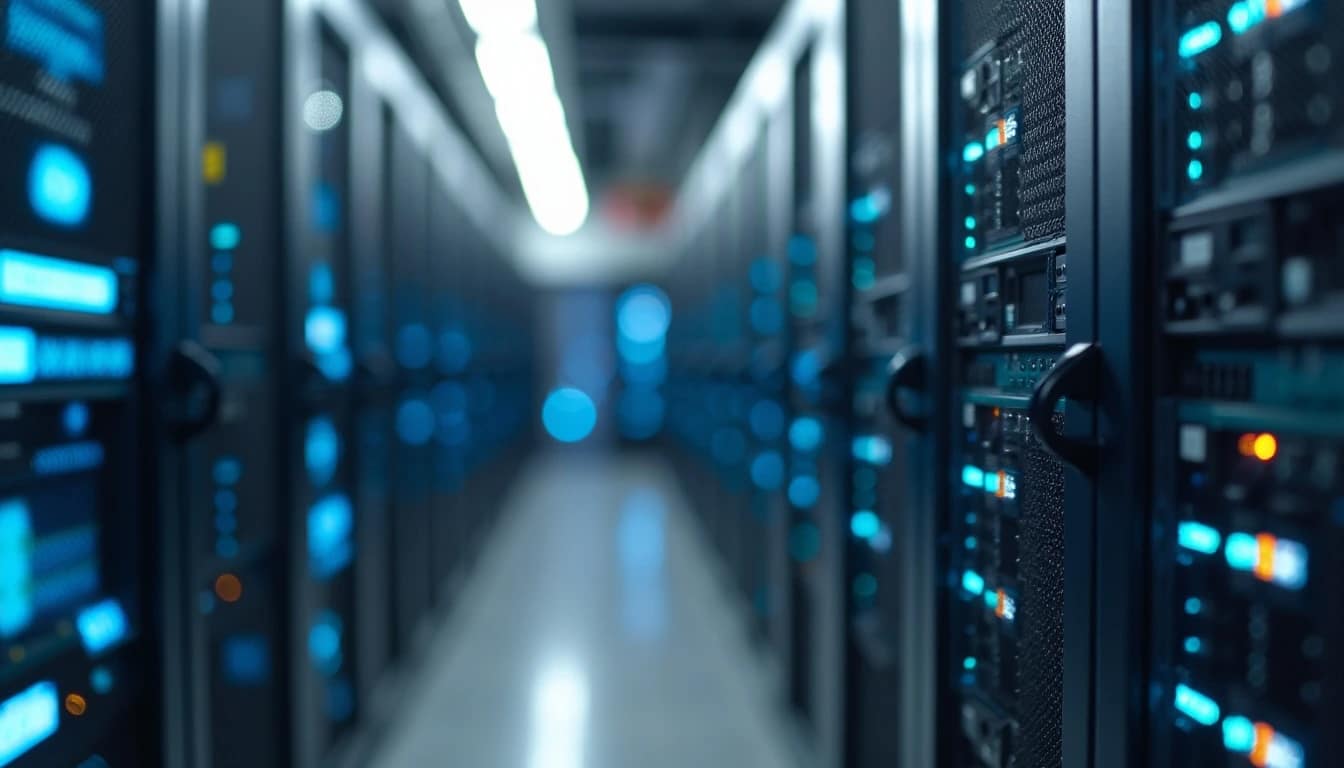Ferrovial has taken a firm step in its diversification strategy into digital infrastructure with the acquisition of the Polish company Sien Real for 56 million euros. The goal is to develop a data center campus in Warsaw, a move that consolidates the company’s commitment to becoming a global developer and investor in a strategic sector driven by the rise of artificial intelligence and cloud computing.
From Builder to Digital Investor
In 2024, Ferrovial created its Digital Infrastructure division with the ambition of transitioning from a leading builder to a global player in data center investment and development. With more than 10 years of experience constructing critical facilities in Spain and Poland—such as Telefónica’s data centers (now Nabiax) in Alcalá de Henares and Microsoft’s in San Sebastián de los Reyes—the company has decided to ramp up its role.
To lead this unit, they hired András Szakonyi, who brings over two decades of experience at Iron Mountain and international expertise in deploying data infrastructure. Alongside him, the management team includes Alfonso Pérez as CFO and Pedro Gómez as Strategy Director, reporting directly to CEO Ignacio Madridejos.
Warsaw as a Digital Hub
The acquisition of Sien Real isn’t just a real estate deal: it covers land, premises, and engineering structures prepared to establish a data center campus in Poland’s capital. Ferrovial will hold 50% of the project, while its local subsidiary Budimex will control the other half.
Poland has become a key market in Ferrovial’s digital strategy. Budimex, in which the group owns 50.14% of the shares, is already building the new facility for the Ministry of Finance’s IT Center in Radom, competing with the German subsidiary of ACS (Hochtief) and Warbud for three Polish government data center projects, representing an investment of over 230 million euros.
Furthermore, in 2023, Budimex and Ferrovial established BXF Energia to develop renewable projects in Poland, aiming for 500 MW of wind and solar capacity by 2028, aligning with the profile of next-generation data centers, which are increasingly required to operate with clean energy.
Spain and the United States, Other Pieces of the Puzzle
The Warsaw move is part of a broader offensive. In Spain, Ferrovial already has ready-to-build projects and continues to sign agreements with major tech companies after the one with Microsoft in 2022. The company aims to position itself as a key partner for hyperscalers deploying infrastructure in the country: Amazon Web Services, Google, Meta, Oracle, and IBM, all with investment plans in Spain.
In the United States, considered the largest data center market worldwide, Ferrovial explores opportunities in greenfield assets both as a constructor and investor. This approach is supported by the growth of its Energy division, which recently acquired a 250 MW solar project in Texas with an estimated investment of 300 million euros.
Direct Competition with ACS
Entering the data center business places Ferrovial in direct competition with ACS, another major Spanish construction firm that has identified this sector as a key growth driver. Hochtief, ACS’s German subsidiary, competes in several government projects in Poland, suggesting a fierce rivalry between the two companies in Central Europe.
A Sector in Full Bloom
Ferrovial’s interest in data centers is no coincidence. The demand for cloud computing, generative AI, and streaming services is skyrocketing global processing capacity needs. Sector data indicates that investment in digital infrastructure will exceed $500 billion annually by the end of the decade, with Europe emerging as one of the most dynamic markets, with Spain and Poland at the forefront.
For Ferrovial, this sector’s growth offers a diversification avenue beyond their traditional infrastructure businesses in transport and energy, but also a way to attract international investment and position as a key partner of major tech providers.
Frequently Asked Questions (FAQ)
Why is Ferrovial investing in data centers now?
Because the exponential growth of AI, cloud, and streaming services is sharply increasing demand for digital capacity, making it a strategic and high-value sector.
What role does Poland play in Ferrovial’s strategy?
Poland is seen as a key emerging market in Europe, with strong government support and significant appeal for hyperscalers. Through Budimex, Ferrovial aims to lead this ecosystem from Warsaw.
How does Ferrovial compete with ACS in this sector?
Both Spanish companies have identified data centers as a strategic growth area. While Ferrovial focuses on direct investments and development, ACS bolsters its presence through Hochtief in European government projects.
What impact do renewable energies have on these projects?
Increasingly, data centers are required to operate with clean energy to reduce their carbon footprint. Ferrovial leverages its Energy division, with wind and solar projects in Spain, Poland, and the US, to integrate sustainability into its offerings.
via: eleconomista

